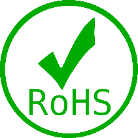
 As the world continues to get smaller, more and more corporations are utilizing manufacturing capacity near or in the markets in which they sell their products. In the case of multinational companies who do business in Europe, manufacturing facilities are being leveraged within the boundaries of the EU (European Union). An important aspect of industrial equipment, including testing systems, deployed into those facilities is the requirement that each unit be CE Certified by its manufacturer regardless of its place of manufacture. Selecting a test systems integration partner who is skilled in navigating the EU’s CE requirements is critical to ensuring your test systems can quickly pass through Customs and can be legally deployed to these EU-based manufacturing facilities.
As the world continues to get smaller, more and more corporations are utilizing manufacturing capacity near or in the markets in which they sell their products. In the case of multinational companies who do business in Europe, manufacturing facilities are being leveraged within the boundaries of the EU (European Union). An important aspect of industrial equipment, including testing systems, deployed into those facilities is the requirement that each unit be CE Certified by its manufacturer regardless of its place of manufacture. Selecting a test systems integration partner who is skilled in navigating the EU’s CE requirements is critical to ensuring your test systems can quickly pass through Customs and can be legally deployed to these EU-based manufacturing facilities.
 CE Certification is frequently provided by 3rd Party testing and certification facilities who specialize in providing certifications against various standards including CE, UL, FCC, and others depending on the product. These requirements and standards can vary widely from standard-to-standard, but can even have dramatically different requirements within a given standard depending on the type of product or equipment. For industrial equipment and testing systems, the requirements can be both very specific and at the same time vague depending on your type of application. Further, knowing which standards and directives within the requirements apply to your situation can be daunting.
CE Certification is frequently provided by 3rd Party testing and certification facilities who specialize in providing certifications against various standards including CE, UL, FCC, and others depending on the product. These requirements and standards can vary widely from standard-to-standard, but can even have dramatically different requirements within a given standard depending on the type of product or equipment. For industrial equipment and testing systems, the requirements can be both very specific and at the same time vague depending on your type of application. Further, knowing which standards and directives within the requirements apply to your situation can be daunting.
CE compliance is a requirement that should be identified early on in your test system planning, procurement, and development process. Early identification of a CE certification requirement can allow you the time to evaluate your specific requirements and also determine which directives apply to your situation. Once you know the requirements of the specific directives, you can then plan time and resources for the associated efforts that will be required.
Initially, you will need to ensure that your test system design is implemented to support the CE requirements. This can involve safety, low voltage, and EMC considerations as well as mandatory environmental restrictions such as RoHS. Thus, selection of components to avoid forbidden materials, and also specific design considerations (e.g., wiring colors, labeling, physical safety, etc.) must be monitored and considered. Once your design is completed, it is sometimes recommended to do an initial consultation with your CE compliance expert. This can avoid rework and retesting later.
 During the build-phase of your test system, it is also important to utilize technicians who have been trained on the array of requirements specified in the various CE directives. It is also important that you implement RoHS compliant processes for instance by maintaining a lead free assembly process, having lead free workstations, not cross-contaminating between leaded and lead-free workstations, etc. It is important to also implement in-process QC against a checklist that includes CE workmanship requirements and standards. Ensuring that build requirements are adhered to, again, will minimize the need for rework and retesting.
During the build-phase of your test system, it is also important to utilize technicians who have been trained on the array of requirements specified in the various CE directives. It is also important that you implement RoHS compliant processes for instance by maintaining a lead free assembly process, having lead free workstations, not cross-contaminating between leaded and lead-free workstations, etc. It is important to also implement in-process QC against a checklist that includes CE workmanship requirements and standards. Ensuring that build requirements are adhered to, again, will minimize the need for rework and retesting.
Next, your completed test system(s) will need to be inspected and tested by a CE certification expert. This will take the form of documentation review and confirmation, and then inspection against the appropriate CE directives. Finally, testing is required to ensure that the unit is safe, does not emit/radiate electrical noise above a certain threshold, and also applies with the rest of the various directives. Specialized equipment and knowledge are both required for many of the inspection and testing phases. Additionally, failures during the inspection and testing process(es) may result in rework and retesting. After all testing and inspection is completed, a specific and detailed documentation package must be generated to justify the final certification approval. Thus, you will need to do your homework to minimize errors, and also ensure you have adequate time and contingency plans in your schedule to accommodate these common issues.
CE Certification can be both time consuming and costly, especially if it is not comprehended early in your project plan. Outside specialized certification companies can also add substantially to your total project cost. Selecting a turnkey test system integration partner who understands CE requirements for your equipment design and fabrication, but also has the skills and experience to provide some or all of the CE certification within their business can be critically important. Additionally, leveraging an equipment provider who can integrate CE certification planning, design, assembly, and testing requirements into their project plan can reduce lead-time, total cost, and risk for your project.
Ball Systems has a 50-year background in developing custom test systems, and has designed and shipped systems internationally since the late 1960’s. We offer full CE compliant design, assembly, and certification for industrial equipment and test systems of numerous types, and we provide this value-add service as an option which can be integrated into a turnkey plan so you’re not having to wonder if your design partner, your assembly partner, and your certification partner will all be on the same page and deliver the lowest total cost and lead time with the lowest risk.

Blog Comments